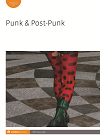
Full text loading...
 , Antonio Pineda1
, Antonio Pineda1
Eskorbuto was one of the most important Spanish-speaking punk bands and the most extreme among those belonging to the ‘Basque Radical Rock’ movement in the 1980s. This article aims to analyse the ideological components of Eskorbuto’s discourse in relation to the political philosophy of anarchism. More specifically, the objective is to ascertain whether Eskorbuto’s music represents key anarchist values, and whether their discourse may be characterized as anarcho-punk. The study focuses on a context-sensitive discourse analysis of Eskorbuto’s lyrics. Results indicate that, through punk music, Eskorbuto’s discourse was linked to anarchism, to the extent that the Basque band was energized by punk’s anti-establishment attitude. However, results also reveal that the socially constructive values of anarchism – such as the belief in a natural order, or the vision of a self-managed collectivist economy – were not clearly conveyed in the band’s nihilistic lyrics. The scope and limits of Eskorbuto’s anarcho-punk characteristics are considered, before discussing the relationship of the band’s raw and confrontational message with the concept of punk-anarchism.

Article metrics loading...

Full text loading...
References


Data & Media loading...

Publication Date:
https://doi.org/10.1386/punk_00147_1 Published content will be available immediately after check-out or when it is released in case of a pre-order. Please make sure to be logged in to see all available purchase options.